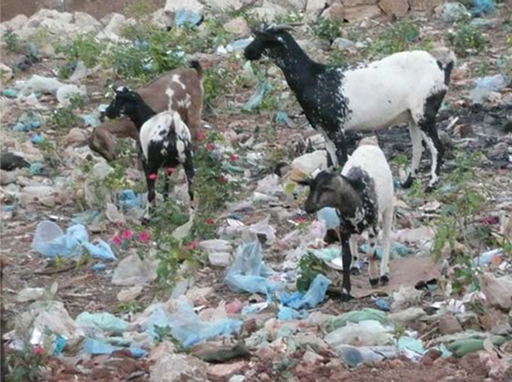2.6 Impacts on the environment
What do we mean by ‘the environment’? You may think of it as your immediate surroundings in the town or kebele where you live or work. However, it can also mean the wider natural world on a much larger, even global, scale. Poor sanitation and waste management have direct impacts on the local environment, but human practices can also have broader consequences.
There are obvious local environmental benefits from improved sanitation. This means that defecation only takes place in properly constructed latrines, areas of land are not contaminated with faeces and watercourses no longer act as sewers. This in turn allows plant life, fish and other aquatic organisms to flourish.
Improving waste management improves the local environment and also benefits the national and even the global environment. Good waste management means less litter in the streets and in the neighbourhood of waste disposal sites (Figure 2.6). It also reduces the smell in the streets from decomposing wastes.

Applying the 3 Rs saves energy because the energy used to recycle metals, paper, glass, etc. is far less than the energy used in producing these materials from raw materials. Energy production is a major source of greenhouse gases. Greenhouse gases, such as carbon dioxide and methane, contribute to human-induced climate change that is causing the overall warming of the Earth and changing weather and rainfall patterns. Recycling (and reduction and reuse) reduce the emissions of these gases. Improving the standards of landfills also reduces greenhouse gas emissions and lowers the risk of polluting local watercourses and the surrounding land.
2.5 Impacts on the economy
